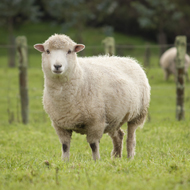Concerns over low protein in silage

"We are very concerned that more samples this year have protein levels below the 10 per cent level which we would consider critical for most stock."
Farmers are being urged to get their silage analysed as soon as possible, before winter feeding, owing to concerns about the number of silage samples with low protein levels.
Scotland's Rural College (SRUC) said it is unclear why there has been a drop in protein on some farms, but the late cold spring and wet winters in recent years could be playing a part. Nutritionist Karen Stewart, from the college's SAC Consulting Beef and Sheep team, fears some results are below safe levels.
While protein shortfalls can be easily rectified once identified, cattle fed on silage with low protein are at risk of rumen digestion problems. In severe cases, this can be fatal.
"We are very concerned that more samples this year have protein levels below the 10 per cent level which we would consider critical for most stock," she explained. "In extreme cases the protein level is even lower than last year with a few at only six to seven per cent CP.
"Most at risk are dry suckler cows, between weaning and calving, where straw is mixed in with silage they eat. In this situation even silages with moderate protein levels, if they are fed too much straw, will cause issues with the function of the animal's rumen and possible rumen impaction."
Despite warnings about low protein last year, SAC Consulting Veterinary Services diagnosed protein deficiency as the cause of death in one or more cattle in three beef herds.
SAC's Heather Stevenson explained: "If your silage is made in a pit containing grass from both the first and second cuts remember any initial samples taken from the feeding face will be largely from the second cut, which in our experience is more likely to have normal protein levels. So if possible take a core sample further into the pit, or another sample as soon as the first cut becomes obvious at the bottom two to three feet of the face."
The problem is most often seen in silages made for beef cattle and sheep, but some made for dairy herds are also recording protein levels below 10 per cent, SRUC added.
Karen Stewart said low protein silages can be rectified by feeding more of a suitable protein supplement. But where levels are below 10 per cent, she recommends seeking professional nutritional advice.



 FIVP has shared a survey, inviting those working in independent practice to share their views on the CMA's proposed remedies.
FIVP has shared a survey, inviting those working in independent practice to share their views on the CMA's proposed remedies.